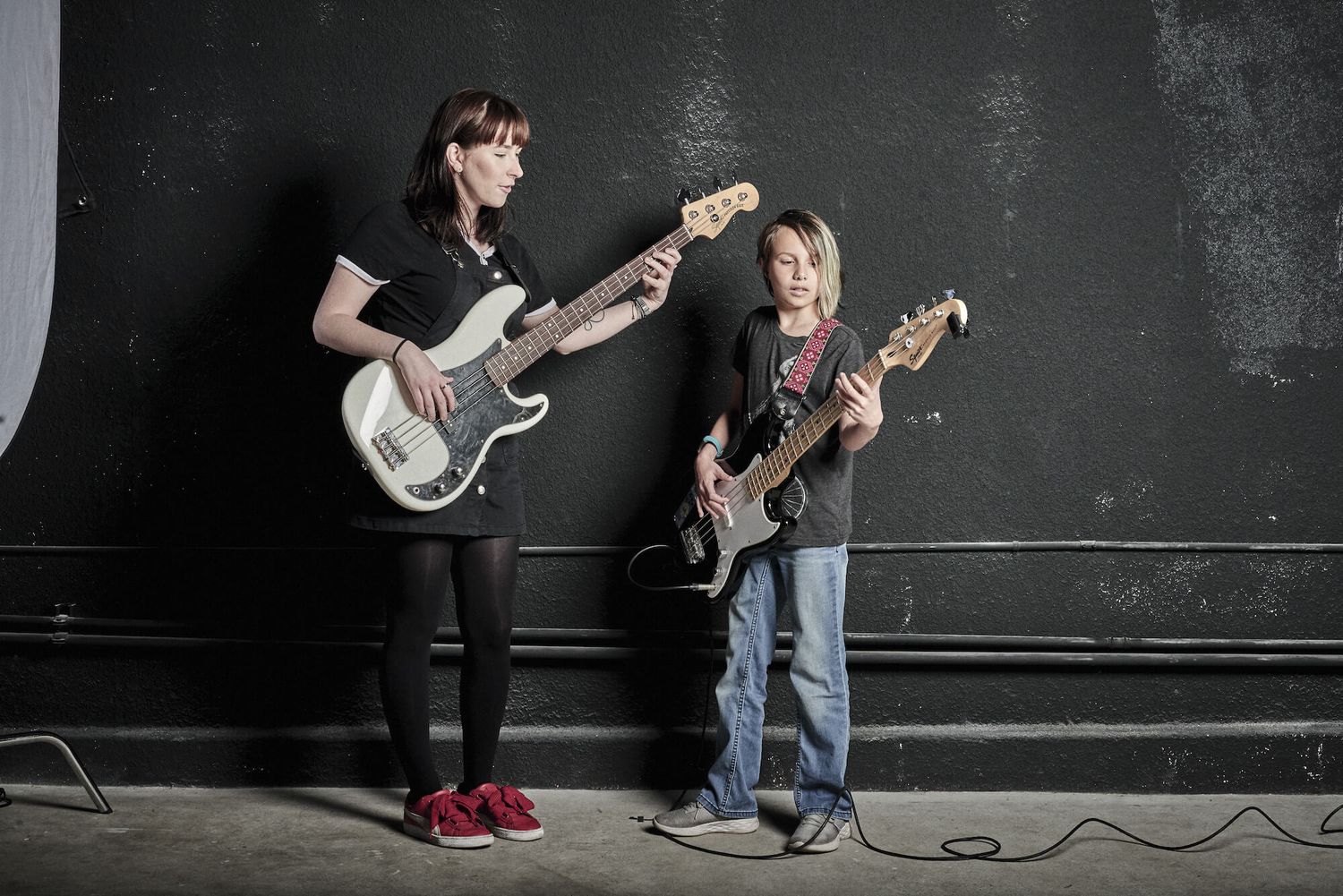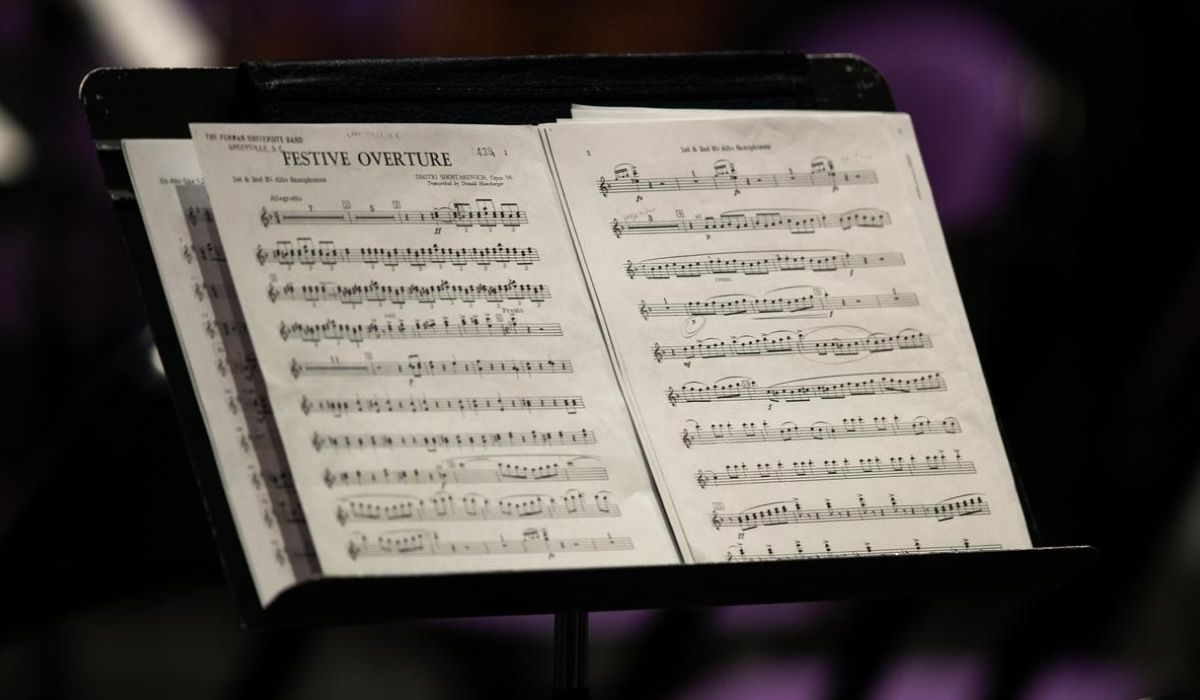Home>Production & Technology>Singer>How Long Does It Take To Be A Good Singer


Singer
How Long Does It Take To Be A Good Singer
Published: February 27, 2024
Learn how long it takes to become a skilled singer and the steps to improve your singing abilities. Discover the journey to becoming a successful singer.
(Many of the links in this article redirect to a specific reviewed product. Your purchase of these products through affiliate links helps to generate commission for AudioLover.com, at no extra cost. Learn more)
Table of Contents
Introduction
Becoming a good singer is a journey that requires dedication, perseverance, and a deep passion for music. Many aspiring vocalists wonder how long it takes to achieve proficiency and excellence in singing. The answer is not straightforward, as the path to becoming a skilled singer is influenced by various factors such as natural talent, vocal training, technique, style development, confidence building, and performance experience.
This article aims to explore the multifaceted aspects of becoming a good singer, shedding light on the time and effort required to hone one's vocal abilities. By delving into the interplay of natural talent and practice, the significance of vocal training and technique, the quest to find a unique style, the importance of building confidence, and the value of performance experience, we will gain a comprehensive understanding of the journey towards vocal mastery.
Embarking on the journey to become a proficient singer involves embracing the nuances of music, understanding the mechanics of the voice, and cultivating a deep connection with the art form. It is a process that demands patience, resilience, and a willingness to continually learn and grow. As we delve into the various aspects of this journey, we will uncover the intricacies of what it takes to develop into a skilled and captivating vocalist.
Natural Talent vs. Practice
Becoming a good singer often sparks the age-old debate of natural talent versus practice. Some individuals seem to possess an innate gift for singing, effortlessly captivating audiences with their melodious voice from a young age. On the other hand, many aspiring singers embark on their journey with a burning desire to improve their vocal abilities through dedicated practice and perseverance.
Natural talent undoubtedly offers a head start in the realm of singing. Those blessed with inherent vocal prowess may find it easier to grasp musical concepts, maintain pitch accuracy, and exhibit a natural flair for emotive expression. However, possessing natural talent does not guarantee sustained success as a singer. It is merely a foundation upon which one can build a formidable vocal skill set.
In contrast, practice plays a pivotal role in shaping a good singer. Diligent and consistent practice allows individuals to refine their vocal technique, expand their vocal range, and develop control over their voice. Through regular practice, singers can enhance their breath support, improve their diction, and cultivate a nuanced understanding of musical phrasing and dynamics.
The interplay between natural talent and practice is where the magic happens. While natural talent provides a promising starting point, it is the dedication to practice that ultimately determines a singer's proficiency. Even those with innate vocal abilities must invest time and effort into honing their craft through structured practice routines and vocal exercises.
Moreover, practice fosters resilience and adaptability, enabling singers to navigate the complexities of different musical genres and performance settings. It instills discipline and a growth mindset, allowing individuals to embrace constructive feedback and continually strive for improvement.
Ultimately, the journey to becoming a good singer hinges on striking a harmonious balance between natural talent and practice. While natural talent may open doors, it is the relentless pursuit of improvement through dedicated practice that paves the way for vocal excellence. Aspiring singers must recognize the value of their innate abilities while embracing the transformative power of consistent practice in their quest to become accomplished vocalists.
Vocal Training and Technique
Vocal training and technique form the bedrock of a singer's journey towards mastery. While natural talent and practice lay the foundation, it is through structured vocal training and honing of technique that singers elevate their abilities to new heights.
Vocal training encompasses a range of exercises and methodologies designed to enhance a singer's vocal prowess. From breathing techniques to vocal warm-ups, vocalists engage in a myriad of practices aimed at fortifying their vocal instrument. Proper breathing lies at the core of vocal training, as it empowers singers to sustain notes, control dynamics, and deliver emotive performances with unwavering vocal support. Furthermore, vocal exercises targeting resonance, pitch accuracy, and articulation play a pivotal role in refining a singer's tonal quality and diction.
Technique, on the other hand, delves into the intricate mechanics of singing. It encompasses aspects such as vocal placement, vowel shaping, and the alignment of vocal registers. By mastering vocal technique, singers can expand their vocal range, achieve seamless transitions between registers, and imbue their performances with a captivating tonal clarity.
Moreover, the guidance of a skilled vocal coach is invaluable in navigating the nuances of vocal training and technique. A knowledgeable mentor can provide personalized feedback, identify areas for improvement, and offer tailored exercises to address specific vocal challenges. Additionally, vocal coaches play a crucial role in preventing vocal strain and guiding singers towards healthy vocal practices, thereby safeguarding their long-term vocal well-being.
Embracing vocal training and technique is not merely about acquiring technical proficiency; it is about cultivating a deep understanding of one's instrument and harnessing its full potential. Through disciplined training and meticulous attention to technique, singers can transcend technical limitations and unleash the full emotive power of their voice.
Aspiring vocalists must approach vocal training and technique with a sense of curiosity and commitment, recognizing that it is a continuous journey of exploration and refinement. By immersing themselves in the nuances of vocal training and technique, singers lay the groundwork for a vocal journey marked by resilience, artistic growth, and the ability to captivate audiences with their unparalleled vocal prowess.
Finding Your Unique Style
Finding your unique style as a singer is a transformative and deeply personal journey that sets you apart as an artist. It involves delving into the depths of your musical identity, embracing authenticity, and cultivating a distinct artistic fingerprint that resonates with your audience.
Discovering your unique style begins with introspection and self-discovery. It entails exploring a diverse range of musical genres, experimenting with different vocal techniques, and immersing yourself in the rich tapestry of musical expression. By embracing versatility and open-mindedness, you can uncover the facets of your voice that resonate most profoundly with your artistic sensibilities.
Moreover, drawing inspiration from a myriad of musical influences can fuel the evolution of your unique style. Whether it's the soul-stirring melodies of jazz, the raw emotional depth of blues, or the infectious rhythms of pop, each genre contributes to shaping your musical identity. By assimilating diverse influences, you can infuse your style with a rich amalgamation of musical elements, creating a tapestry of sonic innovation that is uniquely yours.
Furthermore, authentic storytelling and lyrical interpretation play a pivotal role in defining your unique style. As a singer, your ability to convey emotion and narrative through your vocal delivery is a hallmark of your artistic individuality. By honing your storytelling prowess and infusing each note with genuine emotion, you can carve out a niche that is unmistakably yours, leaving an indelible imprint on the hearts of your listeners.
Embracing your unique vocal timbre and idiosyncrasies is also integral to the process of style discovery. Your vocal quirks, tonal nuances, and emotive inflections contribute to the mosaic of your artistic identity. By celebrating these distinctive traits, you can weave a sonic tapestry that reflects the essence of who you are as a singer, setting you apart in a sea of voices.
Ultimately, finding your unique style is an ongoing odyssey marked by artistic exploration, self-expression, and a deep connection with your inner musical narrative. It is a journey that empowers you to transcend musical conventions, embrace your individuality, and carve a niche that resonates with the hearts and souls of your audience. As you embark on this profound journey of self-discovery, remember that your unique style is a testament to your artistic authenticity and a celebration of the boundless creative potential within you.
Building Confidence
Building confidence as a singer is an indispensable aspect of the journey towards vocal mastery. It is the intangible force that empowers vocalists to command the stage, connect with their audience, and deliver performances that resonate deeply. Confidence is not merely a superficial display of self-assuredness; it is a profound inner belief in one's abilities and a steadfast conviction in the emotive power of one's voice.
Confidence begins to take root when singers embrace vulnerability and authenticity in their artistic expression. It involves shedding inhibitions and fearlessly embracing the raw, unfiltered essence of their voice. By acknowledging and celebrating their vocal strengths while embracing areas for growth, singers lay the groundwork for a resilient sense of self-assurance that permeates their performances.
Moreover, confidence is nurtured through relentless preparation and rehearsal. As singers invest time and effort in honing their craft, mastering their repertoire, and refining their stage presence, they cultivate a profound sense of preparedness that serves as a cornerstone of confidence. Through meticulous preparation, vocalists equip themselves with the tools to navigate performance challenges with poise and grace, instilling a sense of unshakable confidence in their ability to deliver compelling performances.
Furthermore, the support of a nurturing and constructive artistic community plays a pivotal role in bolstering confidence. Whether it's the guidance of a mentor, the camaraderie of fellow musicians, or the encouragement of an engaged audience, the affirmation and constructive feedback from the artistic ecosystem fortify singers with a sense of validation and belief in their artistry.
Embracing the transformative power of confidence is a continuous journey marked by self-discovery, resilience, and a steadfast commitment to artistic growth. As singers cultivate unwavering confidence in their abilities, they transcend self-imposed limitations, embrace the full spectrum of their artistic potential, and inspire audiences with the sheer force of their self-assured artistry.
In essence, building confidence as a singer is a testament to the unwavering belief in the emotive resonance of one's voice, the culmination of relentless preparation, and the celebration of artistic vulnerability. It is the invisible thread that weaves together captivating performances, leaving an indelible imprint on the hearts of listeners and solidifying the singer's presence as a compelling and resonant artistic force.
Performance Experience
Performance experience stands as a defining crucible in the journey of a singer, where the culmination of preparation, passion, and artistry converges on the stage. It is within the crucible of live performance that singers undergo a transformative odyssey, honing their craft, and forging an unbreakable connection with their audience.
The stage serves as a sacred arena where singers transcend the confines of practice rooms and recording studios, stepping into the spotlight to weave a tapestry of emotive storytelling through their vocal prowess. Each performance represents an opportunity for singers to breathe life into their repertoire, infusing each note with raw emotion, and captivating audiences with the sheer force of their artistry.
Moreover, performance experience is a testament to the singer's ability to navigate the intricacies of live musical expression, from harnessing stage presence to forging an intimate connection with the audience. It is a dynamic interplay of musicality, charisma, and vulnerability, where singers invite listeners into a profound sonic journey, leaving an indelible imprint on their hearts and minds.
The crucible of live performance also serves as a forge for resilience and adaptability, where singers learn to navigate the unscripted moments that define live musical expression. Whether it's gracefully overcoming technical hiccups, engaging with an unpredictable audience, or infusing spontaneity into their performances, singers emerge from each live experience with a heightened sense of artistic fortitude and adaptability.
Furthermore, each performance represents a unique opportunity for singers to receive invaluable feedback, glean insights, and refine their artistic expression. The immediacy of live audience reactions provides singers with a nuanced understanding of the impact of their performances, empowering them to continually evolve and refine their craft.
In essence, performance experience is a profound rite of passage that shapes singers into captivating and resonant artistic forces. It is a journey marked by vulnerability, resilience, and the unyielding pursuit of artistic excellence, culminating in performances that transcend the boundaries of time and space, etching a profound and enduring legacy in the annals of musical expression.
Conclusion
The journey to becoming a skilled and captivating singer is a multifaceted odyssey marked by the interplay of natural talent, dedicated practice, vocal training, style development, confidence building, and performance experience. It is a testament to the transformative power of music, the resilience of the human spirit, and the boundless creative potential within each singer.
Aspiring vocalists must recognize that the path to vocal mastery is not bound by a rigid timeline but rather unfolds as a dynamic and deeply personal narrative. The dichotomy of natural talent and practice underscores the importance of embracing one's innate abilities while relentlessly pursuing improvement through consistent and disciplined practice.
Vocal training and technique serve as pillars of strength in the singer's journey, providing the tools to refine their vocal instrument and unlock its full emotive potential. The quest to find a unique style is an artistic odyssey that empowers singers to embrace their individuality, celebrate their influences, and weave a sonic tapestry that resonates profoundly with their audience.
Building confidence stands as an indispensable facet of the singer's journey, infusing performances with an intangible allure and commanding presence. It is the invisible force that empowers singers to transcend self-imposed limitations and deliver compelling and resonant performances that linger in the hearts of their audience.
Finally, performance experience represents a transformative crucible where singers forge an unbreakable connection with their audience, honing their craft, and leaving an indelible imprint on the annals of musical expression. It is within the sacred arena of live performance that singers emerge as captivating and resonant artistic forces, etching a profound and enduring legacy through their emotive storytelling.
In essence, the journey to becoming a good singer is a testament to the resilience, vulnerability, and unwavering passion that define the artistic spirit. It is a journey marked by continuous growth, introspection, and a relentless pursuit of artistic excellence. As singers navigate the complexities of this odyssey, they emerge not only as skilled vocalists but as storytellers, weaving a tapestry of emotive resonance that transcends the boundaries of time and space, leaving an indelible legacy in the hearts and minds of their audience.











